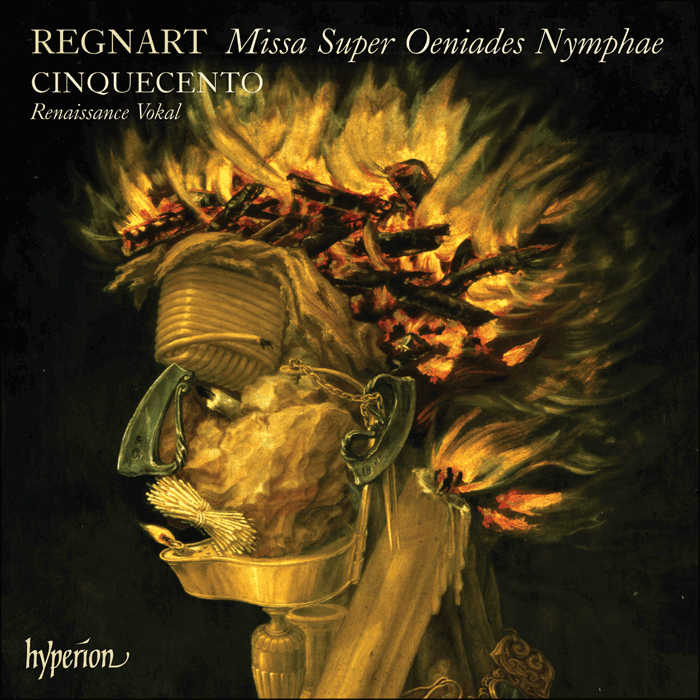Logowanie
Dlaczego wszystkjie inne nie brzmią tak jak te?
SpeakersCorner - OSTATNIE!!!!
RAVEL, DEBUSSY, Paul Paray, Detroit Symphony Orchestra
Prelude a l'Apres-midi d'un faune / Petite Suite / Valses nobles et sentimentales / Le Tombeau de Couperin
Samozapłon gwarantowany - Himalaje sztuki audiofilskiej
PROKOFIEV, Stanislaw Skrowaczewski, Minneapolis Symphony Orchestra
Romeo and Juliet
Stanisław Skrowaczewski,
✟ 22-02-2017
BARTOK, Antal Dorati, Philharmonia Hungarica
Dance Suite / Two Portraits / Two Excerpts From 'Mikrokosmos'
Samozapłon gwarantowany - Himalaje sztuki audiofilskiej
ENESCU, LISZT, Antal Dorati, The London Symphony Orchestra
Two Roumanian Rhapsodies / Hungarian Rhapsody Nos. 2 & 3
Samozapłon gwarantowany - Himalaje sztuki audiofilskiej
Winylowy niezbędnik
ClearAudio
Cartridge Alignment Gauge - uniwersalny przyrząd do ustawiania geometrii wkładki i ramienia
Jedyny na rynku, tak wszechstronny i właściwy do każdego typu gramofonu!
ClearAudio
Harmo-nicer - nie tylko mata gramofonowa
Najlepsze rozwiązania leżą tuż obok
IDEALNA MATA ANTYPOŚLIZGOWA I ANTYWIBRACYJNA.
Wzorcowe
Carmen Gomes
Celebrating the art and spirit of music - vol. 5 - Reference Songs
- CHCECIE TO WIERZCIE, CHCECIE - NIE WIERZCIE, ALE TO NIE JEST ZŁUDZENIE!!!
Petra Rosa, Eddie C.
Celebrating the art and spirit of music - vol. 3 - Pure
warm sophisticated voice...
SAMPLER - STS DIGITAL, Gregor Hamilton
Celebrating the art and spirit of music - vol. 2 - Love songs from Gregor Hamilton
...jak opanować serca bicie?...
SAMPLER - STS DIGITAL
Celebrating the art and spirit of music - vol. 1 - Leonardo Amuedo
Największy romans sopranu z głębokim basem... wiosennym
Lils Mackintosh
Celebrating the art and spirit of music - vol. 4 - A Tribute to Billie Holiday
Uczennica godna swej Mistrzyni
REGNART, Cinquecento
Missa Super Oeniades Nymphae & other sacred music
- 1 Quod mitis sapiens nulli virtute secundus [4:29]
- Missa Super Oeniades Nymphae
- 2 Movement 1: Kyrie [5:02]
- 3 Movement 2: Gloria [5:07]
- 4 Movement 3: Credo [8:21]
- 5 Movement 4: Sanctus and Benedictus [3:32]
- 6 Movement 5: Agnus Dei [5:10]
- 7 Exsultent iusti [3:05]
- 8 Quare tristis es, anima mea? [3:50]
- 9 Stetit Jesus [5:58]
- 10 Inviolata [4:18]
- 11 Lamentabatur Jacob [5:02]
- 12 Stella, quam viderant Magi [2:42]
- 13 Ut vigilum densa silvam cingente corona [3:43]
- Cinquecento - orchestra
- REGNART
CD COMPACT 'RENAISSANCE' AWARD, 2008 'The grave beauty of Regnart's sacred music deserves more friends. The six male voices of Cinquecento, from five European countries, project the Missa Super Oeniades Nymphae and various motets with a clean, forthright delivery, enhanced by a resonant church acoustic. You feel that they've been singing for centuries' (The Times) 'The performances by the six male voices of Cinquecento are exemplary in their matching of vocal lines, and in the singers' ability to characterise every idea without ever losing the sense of the overall musical shape' (The Guardian) 'The Vienna-based Cinquecento's full-throated yet supple performance perfectly captures the Mass's joyful mood, with its soaring lines, delectable passages of sinuous polyphony and moments of striking text-expression … Its ringing, crisply articulated performances, aided by the magnificent sound engineering in a reverberant church acoustic, are no less powerful and brilliant. The group's blend and balance, illuminated by the firm voices of the two countertenors, are near perfect while preserving each voice's individual character. Above all, it is the intelligence of these performances that is striking … Cinquecento's superb performances, together with producer Stephen Rice's informative booklet commentary, make this an ideal introduction to the music of a still little-heard but important composer of the sixteenth century' (International Record Review) 'Even among the plethora of unjustly neglected 16-century polyphonists currently emerging into the limelight, Regnart stands out as a composer of uncommon talent … The motet Lamentabatur Jacob, whose bleak opening, spare textures and dark chromaticisms plumb the depths of despair, makes a particularly striking impression' (Daily Telegraph) 'The repertory is glorious, important and little known; the sextet's vocal technique is superb, in solo performance as well as in ensemble, and the disc's production values are superb' (BBC Music Magazine) 'The polyphony of Jacob Regnart deserves a disc to itself, and this well-constructed programme is an excellent advocate for his varied and inventive music. With a direct, definite and bright-edged tone Cinquecento's six individuals combine to create a distinctive consort sound … An admirably released and forward singing style. While this forthright approach is exciting, they know well when to rein it in, as they do in the sinuous phrases of the Kyrie' (Choir & Organ Magazine) 'Cinquecento nous fait découvrir cet art raffiné, constamment lyrique et personnel, d'une qualité mélodique mémorable. On reste saisi devant les trouvailles sonores qui parsèment les oeuvres: on songe aux savoureuses dissonances de 'Et descendit de coelis' de la messe ou aux poignantes inflexions de 'Quare tristis es' … L'ensemble réussit à transformer cette fragilité en avantage dès lors que l'affect de déploration est solicité, comme dans le très réussi Lamentabatur Jacob' (Le Monde de la Musique) 'This CD itself consists of two state motets, six sacred works, and the centrepiece of the disc, the Missa Super Oeniades Nymphae. The combined effect of this wonderful, timeless music and Cinquecento’s brilliant performances can only be described as therapeutic. Sound-wise, with the help of a perfect acoustic setting … the six voices of Cinquecento have produced a recording of seamless, perfectly tuned and harmonically rich vocal music. The soundstage is panoramic and deep, and each voice has an almost three-dimensional place in the mix. It’s like surround sound but with just two speakers, but sounds perfectly natural. Listening to recordings like this is something everyone would benefit from - it’s like musical time-travel for anyone who wants it. Buy some' (BBC Online) 'The first thing that impresses you is the beauty and richness of the sound. Cinquecento is multicultural, its six members (all men) coming from Austria, Belgium, England, Germany and Switzerland, but the timbres of the voices, while distinctive, are beautifully blended. The often sterile quality of some English, all-male, one-voice-to-a-part ensembles, like the Orlando Consort, is thankfully absent. This is Cinquecento’s second recording for Hyperion, and is every bit as fine as its first ("Music for the Court of Maximilian II" – CDA67579). The music here is all by Jacob Regnart (c1540-1599), and the Hapsburg connection remains intact: Regnart also worked for the emperors Maximilian II and Rudolf II, as well as the Archduke Ferdinand. Regnart’s compositional style is typically late-Renaissance, though perhaps more conservative than Orlandus Lassus’s. The recoding begins and ends with two superb motets written in honour of Jahannes Trautson and Maximilian II respectively; the central work is the parody mass for six voices "Missa Super Oeniades Nymphae". Six sacred pieces follow. Cinquecento lavish as much care and attention to detail on the word-painting as Regnart did, whether it be rhythmic, melodic, harmonic or in terms of texture. The meaning of the first verse (on the words "gloria magna tuae") rings out majestically, while the second verse starts gently but builds almost imperceptibly to a climax on the final gorgeous chord. In the same verse, there’s also an example of a subtle awareness of timbre produced by different sounds with the crowded sibilants in the line "ut sis Eois notus et Hesperiis". Thus the precedent is set for the rest of the disc. The "Missa" is very fine, with much use of antiphony and contrasts between polyphonic and chordal textures, as was the norm. The 'Kyrie' is sung with crispness and dignity, while the "Qui tollis" of the 'Gloria' is full of a sweet expressivity. In the 'Gloria', Cinquecento imbues the "Et incarnatus" with a tremendous sense of mystery; the 'Sanctus' and 'Agnus Dei', shot through with peals of bells, are likewise treated with great sensitivity to the import of the words. The remaining works are likewise superb, both from the point of view of the music and its performance. "Exsultent iusti" is joyful yet restrained, while Regnart’s ambiguous setting of Psalm 42 (43):5, "Quare tristis es anima mea?" is suitably tense and searching. Also of note is the dark solemnity of "Lamentabatur Jacob". The spacious 6-voice "Ut vigilum densa silvam cingente corona", which ends the disc, is made to blaze brightly. The generous … acoustic of the Pernegg Monastery seems perfect for an ensemble of this size, judging by the recording, which is up to Hyperion’s typically high standards. Recording producer Stephen Rice’s booklet note is equally excellent' (ClassicalSource.com) ----------------------------- Cinquecento’s first disc for Hyperion (Music for the Court of Maximilian II CDA67579) was acclaimed as ‘a revelatory disc’ and ‘an outstanding debut recording’. Their supple, mellifluous, expressive singing was particularly praised: ‘Their voices are young, lithe, pure in intonation and warm in timbre—in short, ideal for interpreting Renaissance polyphony’ (International Record Review). Their eagerly awaited second release presents the music of Jacob Regnart (c1540–1599) and continues their exploration of the rich repertoire which was engendered in the Hapsburg court. The centrepiece of this disc is the splendid Missa Super Oeniades Nymphae, an expansive and elaborate setting for six voices. Also included are two state motets and six sacred pieces, which demonstrate the extraordinary musical and emotional range of Regnart’s work.

























